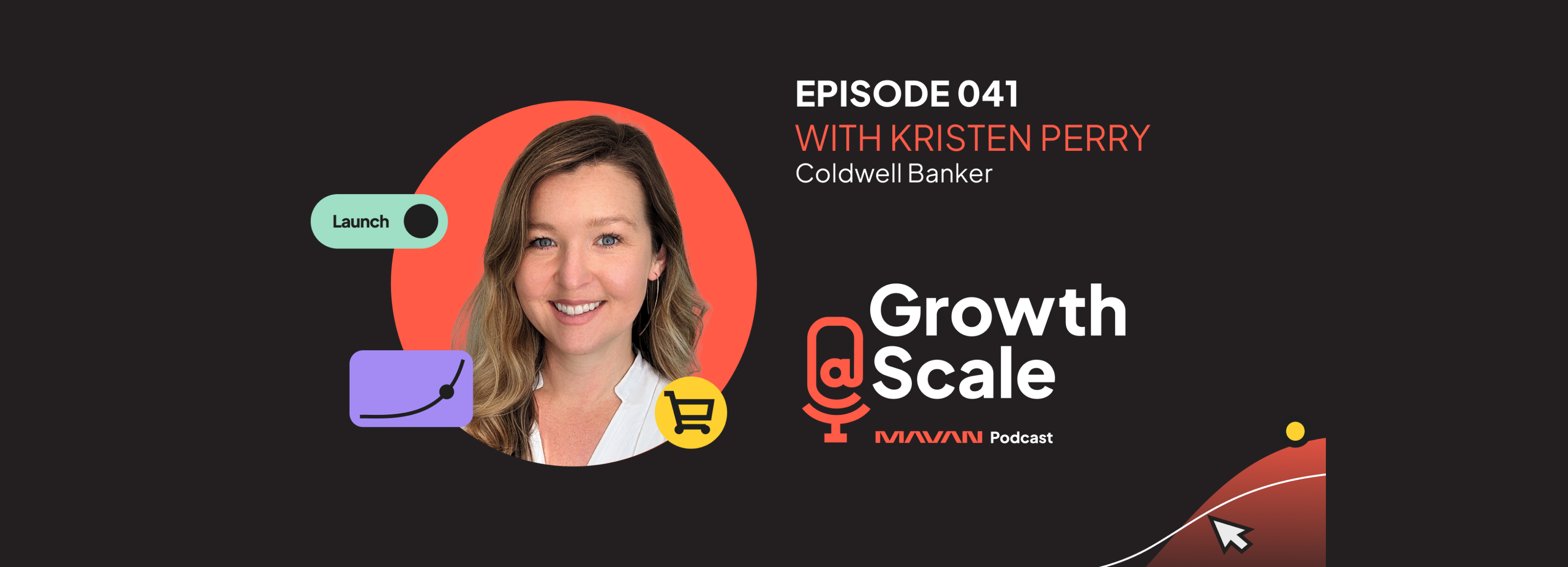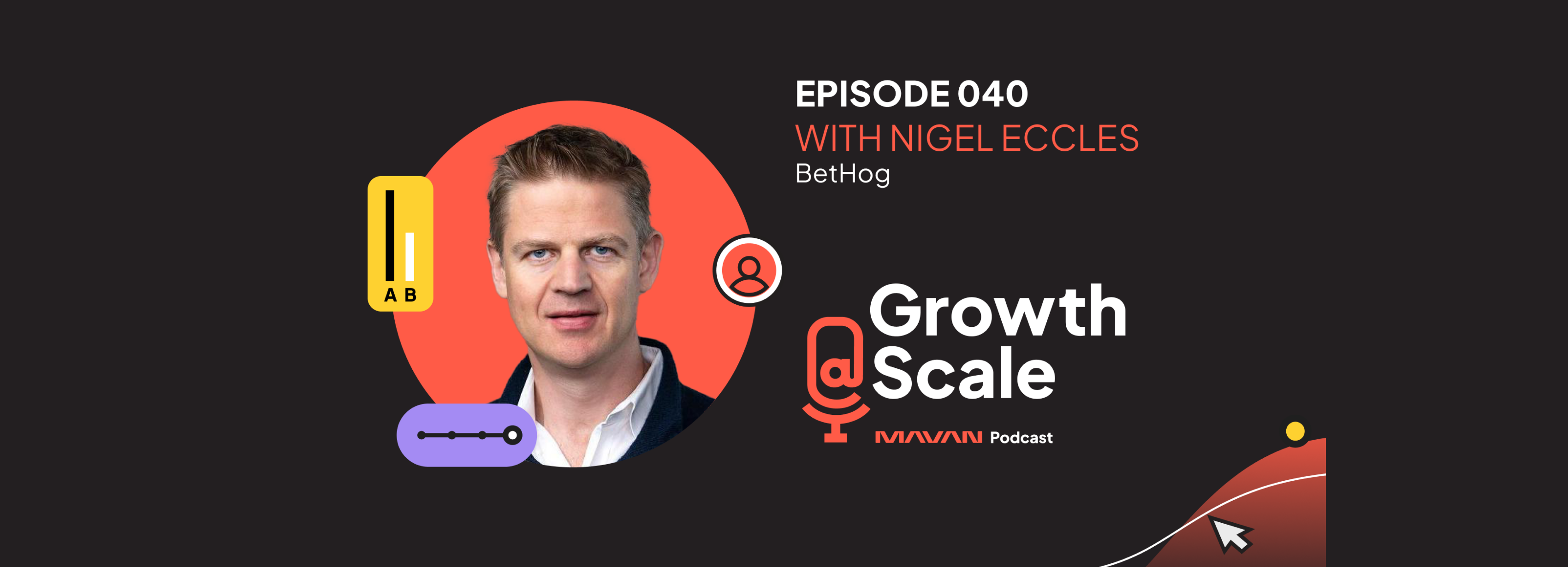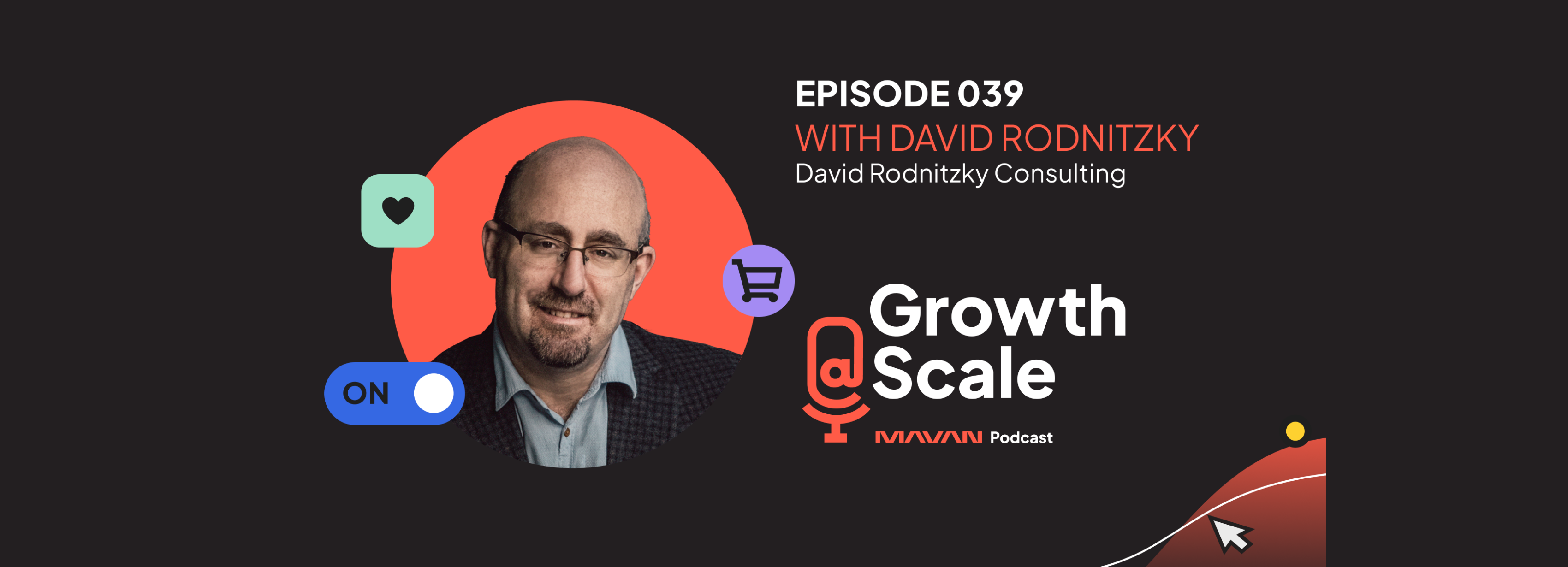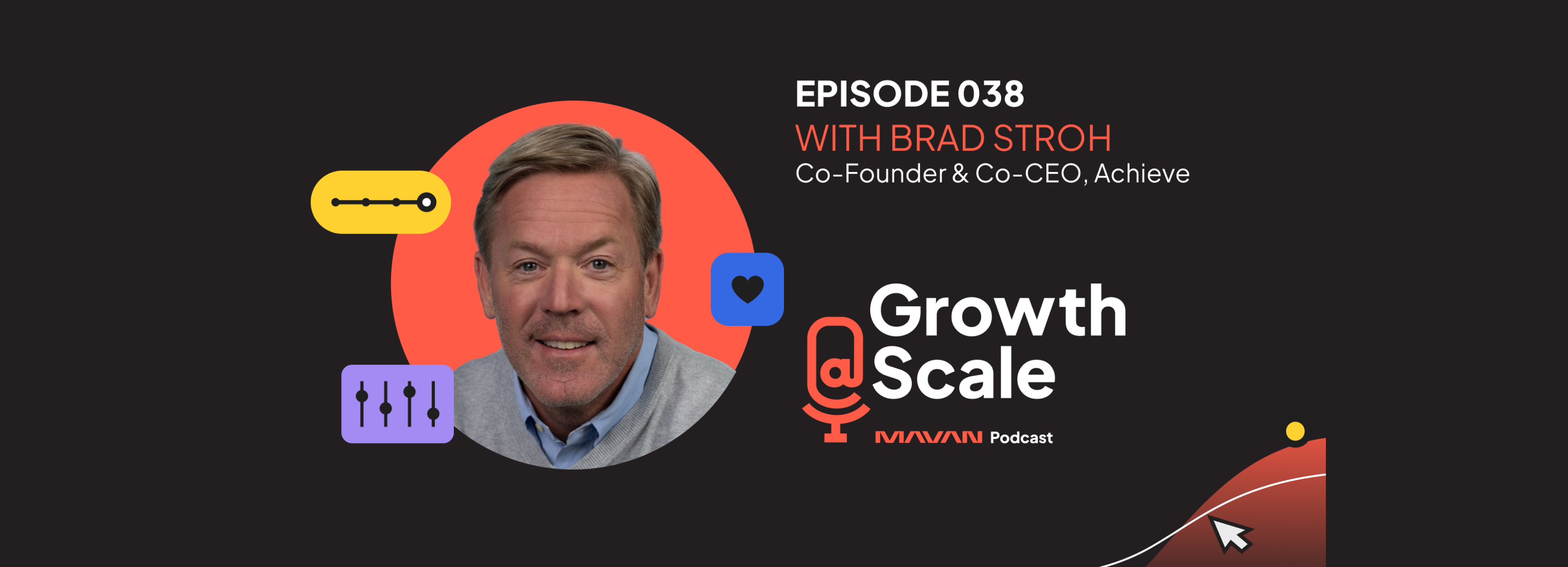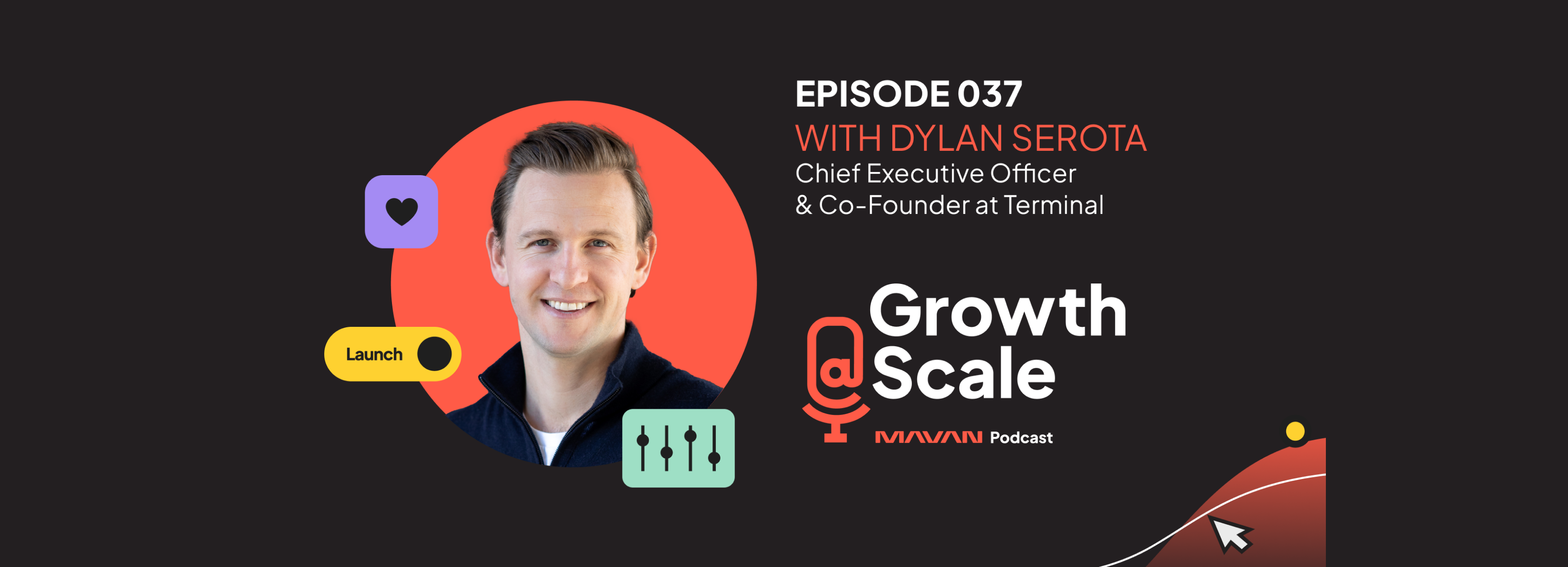Growth@Scale – Episode 10 – Katie Jackson
Matt Widdoes
Welcome to Growth at Scale. I'm your host, Matt Widows. This is a podcast for leaders who want to bring sustainable, predictable, scalable growth to their businesses. Every episode I sit down with world -class growth experts across product, marketing, finance, operations, you name it. The hope is that these conversations will give you real, actionable advice for building and sustaining company growth. Our guest today is Katie Jackson. Katie is an organizational strategist and coach who has a ton of experience helping organizations transform and evolve. Katie and I had a great discussion about when, where, and how we work, diving into hot -button topics like back -to -office strategies, unlimited paid time off, and the four -day work week. Enjoy!
Matt Widdoes
Your role in some ways is maybe and likely more important than ever. I'm curious, in what ways have you seen, if any, your role change, right, and the needs of your role change? And more broadly, when you look at the landscape of various companies that you've engaged with or you're just aware of, how have their needs changed, if at all?
Katie Jackson
Yeah, I think the biggest gift that the pandemic gave us, it was like a collective self -awareness boost for everyone. Everyone started to really understand that they had needs and needed to do self -care and set boundaries, can say, you know, I need to work from home today, like I need a more flexible schedule and people are more understanding of that. But with that, it's created more complexity. And like I said earlier, I think we're in this awkward stage where we're still referencing some of our old ways of working and trying to honor the needs of the future. And it's a collective effort because I do find that employees are more vocal about what they need. And they're more willing in all hands to speak up and be like, I disagree with this. And this is what we need. And which is great. And I think that's also.
Matt Widdoes
More bold from home.
Katie Jackson
They're more bold from home. But I do, even as a facilitator, I'm finding, like I love design thinking sessions. And I love like a good whiteboarding session with like sticky notes and dot voting. And I'm not getting that because people are either in person or there's like three people that will be on Google Meet or Zoom. And just thinking of creative ways to make sure that cultural norms are still intact in ways like the how, not the what. So how can we have some ways of working that are equitable for people? And so just how we choose to check in with people? Like, are we having a cadence that works so we're still feeling connected? the thoughtful questions we choose to ask. So we're not just getting right into the tactical, but we're adding a human element to it. Even for us at In -Sitro, we'll make sure that all of our cameras are on, even if we're in the room. Like I just facilitated a few sessions this week, where it's like everyone in, we're gonna use Jamboard, just so we can like, you know, get a little bit of brainstorming in. It's really finding clever ways to make it a common experience for everyone. And I do worry that there are some people, especially in my setting, they'll have to be in the lab. And so they worked through the pandemic, the whole time in the office. And then you have other folks who are like, I started a whole new life for myself, where I can travel the world and work remote. And I guess that that just comes down to each person's, you know, choice in career. And that that's like, it just leads to like needing to be in an office or not. But it is hard because people are more vocal and they're more in touch with what they need. And so I think a lot of the work now is really being even more audience centric than before and employee centric, and really having empathy for what's needed. And I also think like co -creating solutions with the people the solutions are for, so that we can really be grounded in the reality. So for like, we have this great work -life balance policy or PTO policy, and we haven't actually tapped in with the people who it's for, for them to weigh in. I think that, you know, that's challenging. We definitely just need to come up with the creative solutions for this complexity. It involves a more diverse range of stakeholder perspectives to weigh in and solution together.
Matt Widdoes
I'm curious, we've seen this resurgence of people returning to the office. You hear lots of grumblings about it. How do you think about that generally? There's lots of, we probably do a whole podcast on office, back to office related stuff. But any things that you've seen that are important or, you know, ways for companies to manage that that you feel like are kind of optimal?
Katie Jackson
Yes. So, Bernay Brown always talks about this boundary. boundaries keep us out of resentment. So we definitely have to be intentional about how we create boundaries, especially around our time. I think there's a little bit of getting more anticipatory about if I am going to go into the office, what's my intention for? Is it to be social? Is it like, am I going to make it a social day? If I'm not, I can't feel bad that I've hunkered down in a conference room and I'm not talking to anyone because I also have to work. And I think that people have a hard time saying no, especially if you are a leader in an organization and part of the job is to make those connections and be there for people have like the open office or like my door is always open, especially after almost two or three years of not needing to have your door open because you're physically at home far, far away from everyone. It can be a little hard to recalibrate those boundaries that may have been there in the past where it was like, in a rhythm of like, yep, this is when I talk with my team. This is when I get time alone. We're having to reset that again after just having all this quiet time by ourselves. I think it is about time management and looking at your calendar and end. I would say commit, if you're going to commit to blocking off time to focus, really use that time because if you start to say, well, I don't need to focus. And then all of a sudden you packed your day with social stuff. Um, that is kind of a personal journey for people, I would say, but everyone's in that together and learning. And so it really is just balancing, um, the different competing priorities that we have as, as humans who need to work together and just knowing what works best for you.
Matt Widdoes
One of the things we've been thinking a lot about here at Maven is, you know, we have unlimited PTO. We had that at, I had that at Zynga. We've also, um, next year in, in, uh, 2023, we are going to test a four day work week. Um, and maybe we'll take them separate. I'm curious to hear your thoughts on things like unlimited PTO. And then we'll do kind of a followup on, uh, and again, we probably do a whole another podcast on four day work week. Um, but I'm curious to hear your thoughts on, on that first one.
Katie Jackson
Oh, it's such a loaded word nowadays. Um, unlimited PTO. It sounds so sexy. Um, but in reality, I don't know how it's working out for people. I think it does require a level of like organizational maturity to be able to execute that and understand how it works. When we're starting to be dependent on one another as a team, cross -functionally as an organization, it just like, complexity is so much greater. And so our individual choices start to have a ripple effect on the rest of the organization. Yeah. The guy who's taking two weeks, like that's magnified. If we've got someone who hasn't taken PTO in like a year and a half and is so burnt out to me, unlimited PTO or a time boxed amount of PTO is really just a tactic for the bigger issue, which is how do we make sure that we're we are mindful and planful and proactive and intentional about how we are making the impact we need to make. Are we hitting our OKRs? Is it really about PTO or people's burnout or is it more about processes and ways of working to get things done? I don't think it would be an issue if people were like, all right, I'm going to go away for two weeks. I've made my game plan for how it's all going to be covered. So it's going to be a seamless process while I'm gone. What we're probably finding with organizations is that's just not the case. So what that makes me wonder is how do we teach employees and people managers how to have that capability in that mindset to be able to plan and project plan and resource plan differently versus it's about PTO or not. I think some people do like to shut down all at once, though, even for a week over holiday breaks because It's isn't it the worst to just you know, you take a break, but you know your email box is just filling up because everyone else is working and you're like I'm not really on a vacation right now because I'm just thinking about all the things I have to do when I get back So there is something to be said for a collective break. So everyone is just silent. Feels nice.
Matt Widdoes
And the boundaries there the expectation is there. It's a known thing the thing I think about even with the our thought of moving to four -day is So many people they have families they have partners They have other people in their lives that that work or have obligations at school or any number of other things where I don't really get Fridays off because I'm alone. I mean sure I can go do something or I don't really get july off because like nobody else does It's one of those things where um, I think similar to what we saw with the pandemic sending everybody home Where if everybody's doing it, you know, if everybody had a Friday off I think it actually would work and I don't know and so maybe in some ways we're leading the charge there But maybe we're maybe we'll put our foot in our mouth and say that that was a mistake at some point I'm not sure.
Katie Jackson
I think similar to other functions and organizations the people function is About piloting things testing and learning and it's just that the experiments are with people and how they feel about things and so testing out a No work on Fridays and you're like well, maybe it won't work and we can do something different But it's important to try it out Because we won't know what works or what doesn't until we go for it And I I do think that like what the pandemic did do And what things like you're about to implement like no work on Fridays will do It expands our awareness of what's possible. So I think for a lot of these Old school companies who wanted everyone in the office all the time All of a sudden this resilience that they didn't even know that they had or this innovation that they never even had to Acknowledge it came out of the woodwork and they were like, oh We can work remote and we're still doing okay. And so it was there the whole time, right? They could have done this the whole time, but it took this catalyst of a pandemic to make them find something from within to be more scrappy. And so now I think they're all like, oh, crap, no one wants to come back to work because they've proved to themselves they can do this from home. So it's an interesting predicament to be in, but I definitely think it spun things for people in ways that they hadn't envisioned or imagined because it just sometimes people don't know what's possible until it's like they've experienced it, where we have some visionaries in the world who are pushing the limits of that stuff and saying, yeah, we don't need to be in the office and they've been that way long before the pandemic too.
Matt Widdoes
I'm curious. So for somebody like me or maybe other founders who are listening who are thinking about or have have dreamed about implementing a four day work week and what that might mean for their business, what would you recommend for us?
Katie Jackson
Well, I'm very much an outcomes based person. So if I were coaching you on this, I would say what's your real intention to begin with that you're going to measure? around is it about productivity? Is it about people's engagement? What is it that you want to measure? Then I think within that too, it's not just about testing it out, but it's bringing people along the journey. What is the case for why? If we know that we have a desired outcome for why we want to implement this, but we need to communicate to people, like this is why we're doing it, this is what it actually looks like, this is how we're going to implement it. Because I think what could happen in the experiment is that people may be unclear and people like, I know we have a no meeting Wednesday and it's still packed with meetings. So what does it really look like? What are the repercussions of that? Because it's less about the experiment and more about the conditions or the constraints you're creating around it that you want to test. But then I think you can just run with it. I mean, go for it. Don't forget the feedback loop though. How will you collect that data? Are you just going to like, Hey, is it going well for people? Or are there other observable things that you can notice where it's like, Oh, actually we're getting a lot of customer calls on a Friday. Shit, we need to do something about this. So you just got to know what you're measuring and then make sure you put into place the ways that you're going to measure the test, but also set it up so you have the right conditions in place. But that would be the case for anything that you'd want to experiment with or implement when it comes to people.
Matt Widdoes
Great. And just curious, any resources, any books you recommend for somebody on the subject that you think are particularly, how can I, how can I learn more about your world and not everything, but you know, what's a good starting point?
Katie Jackson
I mean, people who have never read the five dysfunctions of a team as you're starting to build a team dynamic that's so baseline, like important book to read. But then I, there's this really good book on feedback. It's so cheesy. It's called Thanks for the feedback. It's almost like the love languages of feedback. It tells you about the different types of feedback and how. Sometimes people are expecting one type of feedback and we're giving them a different type. But a lot of the work as a leader is leaning into really uncomfortable conversations, a lot of feedback, a lot of expectation setting. And so, you know, equipping yourself with a language and equipping other people with that language so that you can be in those conversations together is really important. Any book on culture, I feel like you're putting me on the spot here.
Matt Widdoes
I know it. Well, no, I think those are great recommendations. That's a great place to start. We'll have to have you back so you can recommend more books. Thank you so much for the time today, Katie. You're always amazing. I really appreciate the extra time you spent with us today. And I look forward to the next time. Thanks again.
Katie Jackson
So great to spend time with you. Thanks!
Matt Widdoes
That was a great chat with Katie Jackson. If you haven't already listened to our conversation about company culture, give it a listen. Thanks for listening to Growth at Scale. Check back soon for more chats about growth. Find more episodes, conversations, and blogs at Mavan .com. See you next time.
